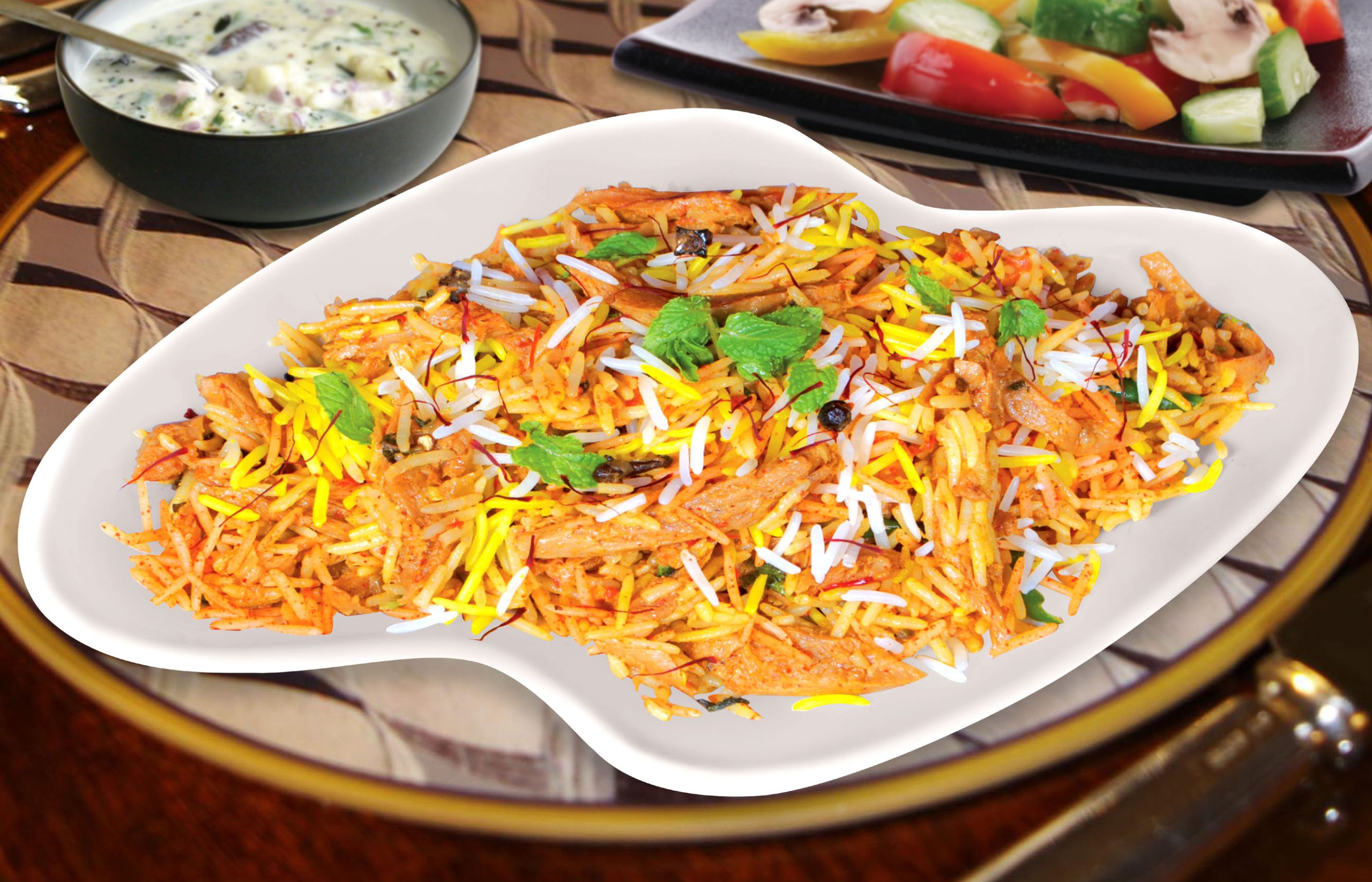Introduction
Soya biryani has gained popularity as a delicious and healthy alternative to traditional biryani dishes. It combines the rich flavors of biryani with the nutritional benefits of soya. In this article, we will explore what soya biryani is, its health benefits, and whether it is safe to include soya in your daily diet.
What is Soya Biryani?
Soya biryani is a vegetarian or vegan variant of the classic biryani dish. It replaces meat or chicken with soya chunks or granules as the primary protein source. Soya chunks Biryani are made from defatted soy flour and are rich in protein, making them an excellent substitute for meat. These chunks are marinated in aromatic spices, cooked with basmati rice, and garnished with herbs and fried onions to create a flavorful and satisfying biryani.
Health Benefits of Soya
Soya is a versatile legume that offers several health benefits. Here are some of the key advantages of including soya in your diet:
1. High in Protein
Soya is one of the best plant-based sources of protein. It contains all the essential amino acids necessary for building and repairing body tissues. Soya protein is easily digestible and can be a valuable addition to a vegetarian or vegan diet.
2. Heart Health
Consuming soya products, including soya biryani, may help lower the risk of heart disease. Soya contains phytochemicals called isoflavones, which can improve cholesterol levels and reduce the risk of cardiovascular problems.
3. Bone Health
Soya is a rich source of calcium, which is essential for maintaining healthy bones and teeth. It also contains isoflavones that may help prevent osteoporosis and improve bone density.
4. Hormonal Balance
Isoflavones present in soya have a similar structure to estrogen, a female hormone. They may help alleviate symptoms of menopause, such as hot flashes and mood swings. However, it’s important to consult a healthcare professional for personalized advice.
Nutritional Profile of Soya
Soya is a nutrient-dense food that provides various essential nutrients. Here is the nutritional composition of 100 grams of cooked soya chunks:
- Calories: 336 kcal
- Protein: 36 grams
- Carbohydrates: 30 grams
- Fiber: 12 grams
- Fat: 20 grams
- Iron: 15 milligrams
- Calcium: 240 milligrams
Soya is also a good source of vitamins, minerals, and antioxidants, making it a valuable addition to a balanced diet.
Is Soya Biryani Safe to Eat Every Day?
Soya biryani can be a healthy and delicious meal option, but it is important to consume it in moderation. While soya offers numerous health benefits, excessive consumption may have potential risks. It is advisable to have a diverse diet that includes a variety of protein sources and not rely solely on soya for daily protein intake.
Risks and Side Effects of Excessive Soya Consumption
Although soya is generally safe for most people, consuming excessive amounts may lead to certain side effects. Here are a few risks associated with excessive soya consumption:
1. Thyroid Function
Soya contains compounds called goitrogens that may interfere with thyroid function. Individuals with thyroid disorders or those taking thyroid medication should consult with their healthcare provider before consuming large quantities of soya.
2. Allergies
Some individuals may be allergic to soya or experience allergic reactions. If you have a known soy allergy, it is best to avoid soya biryani or any other soy-based products.
3. Digestive Issues
Consuming too much soya can cause digestive problems such as bloating, gas, and diarrhea. It’s essential to listen to your body and consume soya in moderate amounts.
Conclusion
Soya Biryani is a flavorful and nutritious vegetarian or vegan dish that provides an alternative protein source to meat-based biryanis. Soya offers various health benefits, including being high in protein, promoting heart health, and supporting bone health. However, it is important to consume soya in moderation and maintain a balanced diet that includes other protein sources. If you have any specific health concerns or allergies, consult with a healthcare professional before making significant changes to your diet.
FAQs
Q1: Can soya biryani be included in a weight loss diet?
A1: It can be a part of a weight loss diet due to its high protein content and relatively lower calorie count. However, portion control and overall calorie intake should be considered.
Q2: Can soya biryani be consumed by individuals with gluten intolerance?
A2: Yes, It is gluten-free, and individuals with gluten intolerance can safely consume it.
Q3: Is soya biryani suitable for children?
A3: It can be included in a child’s diet as a source of plant-based protein. However, it is important to introduce it gradually and consider any potential allergies or digestive issues.
Q4: Can soya biryani be reheated and consumed the next day?
A4: Yes, you can reheat and consume leftover soya biryani. Make sure to store it properly in the refrigerator and reheat it thoroughly to avoid any foodborne illnesses.
Q5: Is organic soya a better choice for making soya biryani?
A5: Organic soya can be a preferred choice as it is free from pesticides and genetically modified organisms (GMOs). However, it is a personal preference, and both organic and non-organic soya can be used to make soya biryani.
Tags: health benefits of soyais soya biryani safe to eat every day?soya biryaniSoya chunks Biryaniwhat is soya biryani?

